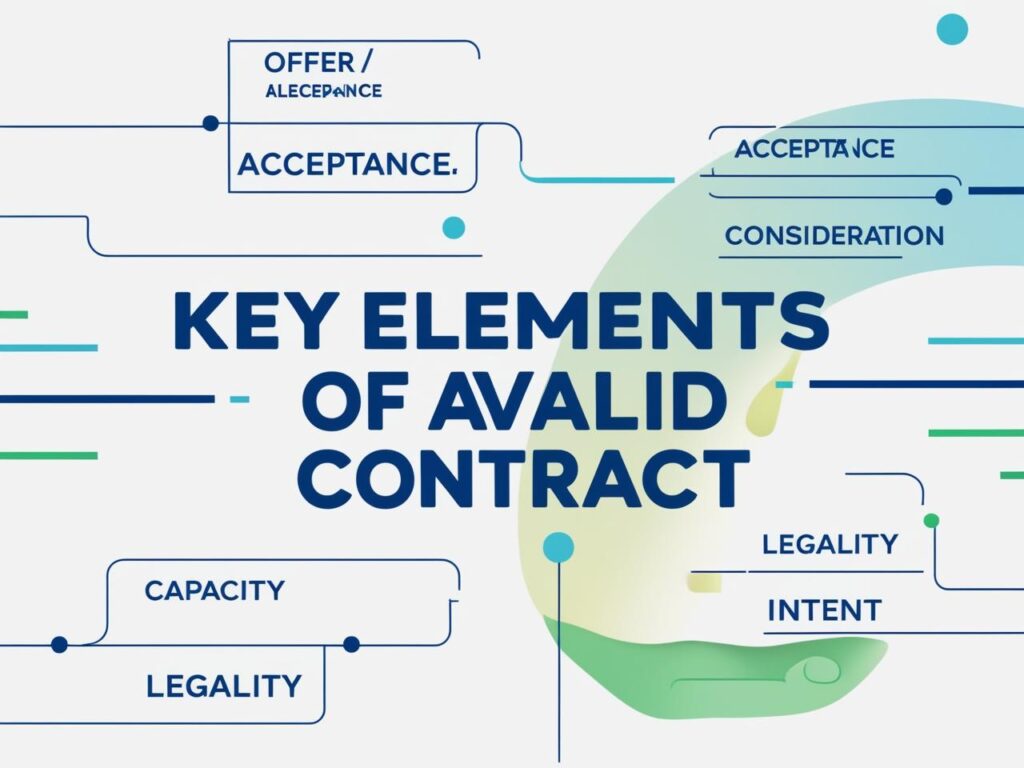Key Elements of a Valid Contract: What Every Business Should Know
Contracts are the cornerstone of business relationships and legal obligations. Whether you are a startup seeking company incorporation or an individual working with a divorce lawyer in Delhi, understanding the essentials of a valid contract is crucial. A legally enforceable contract ensures that all parties involved are protected and can seek remedies in case of disputes. At Chugh and Associates, we believe that clarity and legal precision are essential for building trustworthy agreements.
Here are the key elements that make a contract valid under Indian contract law:
1. Offer and Acceptance
A contract begins with a clear offer by one party and its unambiguous acceptance by the other. This mutual agreement must be free of misunderstandings or vague terms. For example, in agreements involving trademark registration lawyers in India, both the client and the lawyer must agree on the scope of services, timelines, and fees.
2. Legal Consideration
For a contract to be valid, something of value must be exchanged. This could be money, services, or goods. Consideration distinguishes a contract from a mere promise. For instance, in a GST compliance service agreement, the business pays for the professional service, while the expert ensures all filings are done correctly and on time.
3. Capacity to Contract
The parties entering into a contract must be legally capable of doing so. This means they should be of sound mind, not minors, and not disqualified by law. For corporate clients, such as those seeking company incorporation, this also includes compliance with relevant laws and having authorized representatives sign on behalf of the company.
4. Free Consent
Consent must be given freely and not obtained through coercion, fraud, undue influence, or misrepresentation. Contracts signed under pressure, such as in some emotionally sensitive cases handled by divorce lawyers in Delhi, may later be deemed void or voidable if consent was not truly free.
5. Lawful Object and Consideration
A valid contract must not involve anything illegal or against public policy. Agreements for unlawful activities are void, even if all other elements are present. Legal firms like Chugh and Associates ensure that all agreements drafted comply with existing laws, protecting clients from future legal troubles.
Why Legal Guidance Matters
Although drafting a contract might seem straightforward, the consequences of an invalid agreement can be severe. Whether it’s drafting employment agreements, vendor contracts, or licensing deals, getting expert legal guidance can save you from prolonged litigation and financial losses. Engaging a specialized firm such as Chugh and Associates, known for its expertise in corporate law, GST compliances, and intellectual property, can provide you with peace of mind and legal clarity.
Whether you’re a startup founder, a business owner, or someone seeking legal counsel on personal matters, understanding the fundamentals of a valid contract is essential. With the help of experienced professionals—be it a trademark registration lawyer in India or a divorce lawyer in Delhi—you can ensure your legal documents stand up in court and protect your rights effectively.
A contract is a legally binding agreement between two or more parties. For a contract to be valid, it must contain certain key elements. In this blog, we’ll explore the essential components of a valid contract.
Key Elements of a Valid Contract
- Offer: A clear and specific offer made by one party to another.
- Acceptance: The acceptance of the offer by the other party, either explicitly or implicitly.
- Consideration: Something of value exchanged between the parties, such as money, goods, or services.
- Intention to Create Legal Relations: The parties must intend to create a legally binding agreement.
- Capacity: The parties must have the capacity to enter into a contract, meaning they are of sound mind and not under undue influence.
- Legality: The contract must be for a lawful purpose and not contravene public policy.
Additional Considerations
- Clear and Unambiguous Terms: The contract terms should be clear, concise, and unambiguous to avoid misunderstandings.
- Mutual Understanding: Both parties should have a mutual understanding of the contract terms and obligations.
Consequences of a Invalid Contract
If a contract lacks any of the essential elements, it may be deemed invalid or unenforceable. This can lead to disputes, financial losses, and damage to business relationships.
Conclusion
Understanding the key elements of a valid contract is crucial for individuals and businesses to protect their interests and avoid potential disputes. By ensuring that contracts meet the necessary requirements, parties can create legally binding agreements that are enforceable in court.


Comments are closed